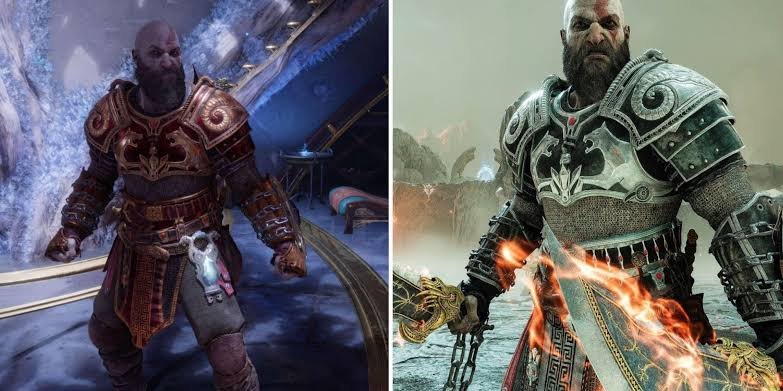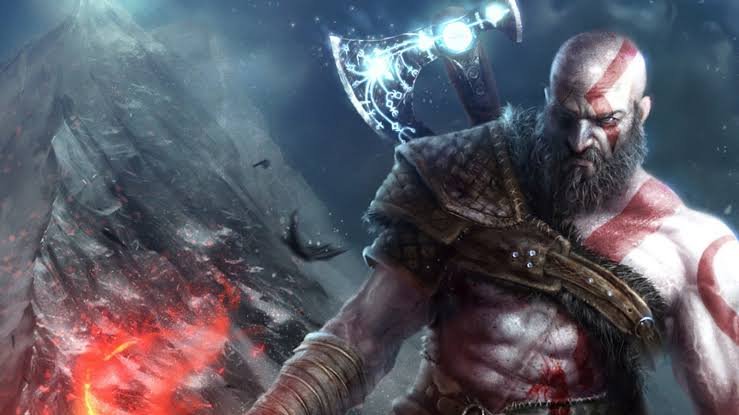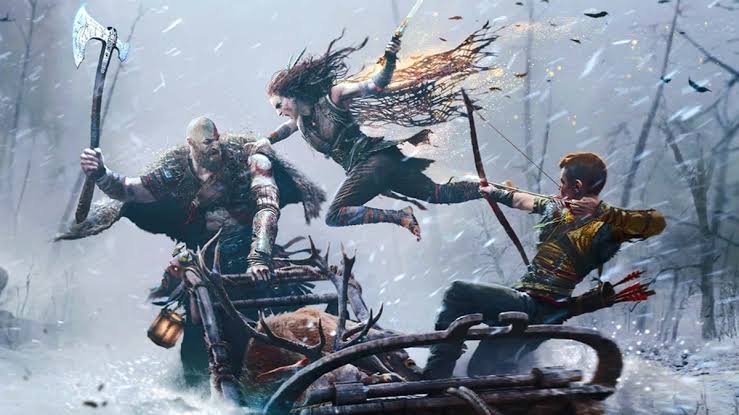Kratos, the protagonist of the popular video game series God of War, is a well-known figure in the gaming world. However, many people have wondered if Kratos is a real god in Greek mythology. The answer is both yes and no.
Kratos, along with his siblings Zelus, Bia, and Nike, is mentioned in the Theogony, a poem by the ancient Greek poet Hesiod.
In this poem, Kratos is described as the god of strength and power. However, it is important to note that this Kratos is not the same as the Kratos from God of War.
The Kratos from the game series is a fictional character created by the game developers, and his story is not based on any specific mythological figure.
Although Kratos is not a real god in Greek mythology, the game developers have drawn inspiration from various mythological figures to create the character.
Kratos shares many similarities with other mythological figures, such as Hercules and Achilles, who were known for their strength and bravery.
Additionally, the game series has also incorporated elements of Norse mythology in its most recent installment, further expanding on Kratos’ story.
Kratos in Greek Mythology
Kratos is a well-known figure in Greek mythology. He is the personification of brute strength or power and is one of the four siblings of the Titan Pallas and the eldest Oceanid, Styx. His brother and both of his sisters were embodiments of similar traits. Zelus represented zeal, aspiration, emulation, and glory, while Nike was the personification of victory.
Roots of Kratos
The earliest known mention of Kratos in ancient Greek literature comes from the poem Theogonia, a long narrative poem about the history of the deities that was composed in around the late eighth or early seventh century by the Greek poet Hesiodos of Askre. According to Hesiodos, Kratos and his siblings were born to Styx, the daughter of Oceanus and Tethys, and Pallas, the son of Crius and Eurybia.
Kratos is often depicted as a fierce warrior, and he is sometimes associated with the god Ares, the Greek god of war. In some myths, Kratos is also said to be a loyal servant of Zeus, the king of the gods.
Despite his important role in Greek mythology, Kratos is not considered a major god. He is more of a minor deity, and his stories are often overshadowed by those of the major gods like Zeus, Poseidon, and Hades.
So, to answer the question, “Is Kratos a real god?” the answer is both yes and no. Kratos was a real figure in Greek mythology, but he was not a major god like Zeus or Poseidon. He was more of a minor deity, and his stories were often overshadowed by those of the major gods.
Kratos in Popular Culture

Kratos, the protagonist of the God of War video game series, has become a pop culture icon known for his violent, ruthless killing of gods. Here’s a closer look at Kratos in popular culture.
Kratos in Video Games
Kratos was first introduced in the 2005 game God of War, developed by Santa Monica Studios. The game was a commercial and critical success, and it spawned several sequels, including God of War II, God of War III, and God of War: Ascension. In 2018, the series was rebooted with a new game simply titled God of War, which takes place in Norse mythology instead of Greek mythology.
Kratos is known for his incredible strength and ability to take down even the mightiest enemies with ease. He wields the Blades of Chaos, a pair of chained blades that he can swing around to attack multiple enemies at once. In later games, he also wields the Leviathan Axe, a magical axe that can be thrown and recalled like a boomerang.
Kratos has become one of the most recognizable video game characters of all time, and he has appeared in several other games outside of the God of War series. He has made cameo appearances in games like Mortal Kombat, Soulcalibur, and PlayStation All-Stars Battle Royale.
While Kratos is a fictional character created for the God of War series, he is based on a real deity from Greek mythology. Kratos was the god of strength and power, and he was often depicted as a winged warrior. However, the Kratos from Greek mythology is not the same as the Kratos from the God of War series, and the games take many liberties with the source material.
In conclusion, Kratos is a beloved character in the video game world, and he has become a pop culture icon known for his incredible strength and ability to take down even the mightiest enemies with ease. While he is not a real god in Greek mythology, he is based on a real deity and has become a cultural phenomenon in his own right.
Comparing Mythological and Pop Culture Kratos
Kratos, the protagonist of the popular video game series God of War, has become a pop culture icon known for his violent, ruthless killing of Gods. But how does this version of Kratos compare to his mythological counterpart?
In Greek mythology, Kratos is the personification of strength and power. He is often depicted as a companion of Zeus and is responsible for enforcing his will. Kratos is also associated with Bia, the personification of force, and Nike, the goddess of victory.
The Kratos of the God of War series combines elements of multiple Greek heroes of mythology. He is a Spartan warrior who was tricked into killing his own family by the God of War, Ares. Seeking revenge, Kratos embarks on a quest to destroy the gods of Olympus.
While the pop culture Kratos shares some similarities with the mythological Kratos, there are also significant differences. For example, the mythological Kratos is not a tragic figure, but rather a loyal servant of Zeus. The God of War Kratos, on the other hand, is a tormented anti-hero who struggles with his own demons.
Here is a comparison table of the key differences between the two versions of Kratos:
| Mythological Kratos | God of War Kratos |
|---|---|
| Loyal servant of Zeus | Tormented anti-hero |
| Personification of strength and power | Spartan warrior seeking revenge |
| Associated with Bia and Nike | Combines elements of multiple Greek heroes |
In conclusion, while the God of War series draws inspiration from Greek mythology, the Kratos of the games is a unique character that combines elements of multiple mythological figures. While there are similarities between the pop culture Kratos and his mythological counterpart, there are also significant differences that set them apart.
Conclusion
In conclusion, it is safe to say that Kratos is a real God in Greek mythology, as he is the personification of strength and power. However, it is important to note that the Kratos in the God of War video game series is not the same character as the one in Greek mythology.
While the two characters share some similarities, they are not the same. The modern-day Kratos is much more revered than the version in Greek mythology, and he has become one of the most recognizable figures in video game history.
It is also worth noting that the Kratos in the video game series is portrayed as a renegade demigod who kills all the major deities in Greek mythology, which is not accurate to the original mythos.
Overall, while Kratos is a real God in Greek mythology, the Kratos in the God of War video game series is a fictional character that has been adapted from the original mythos.






